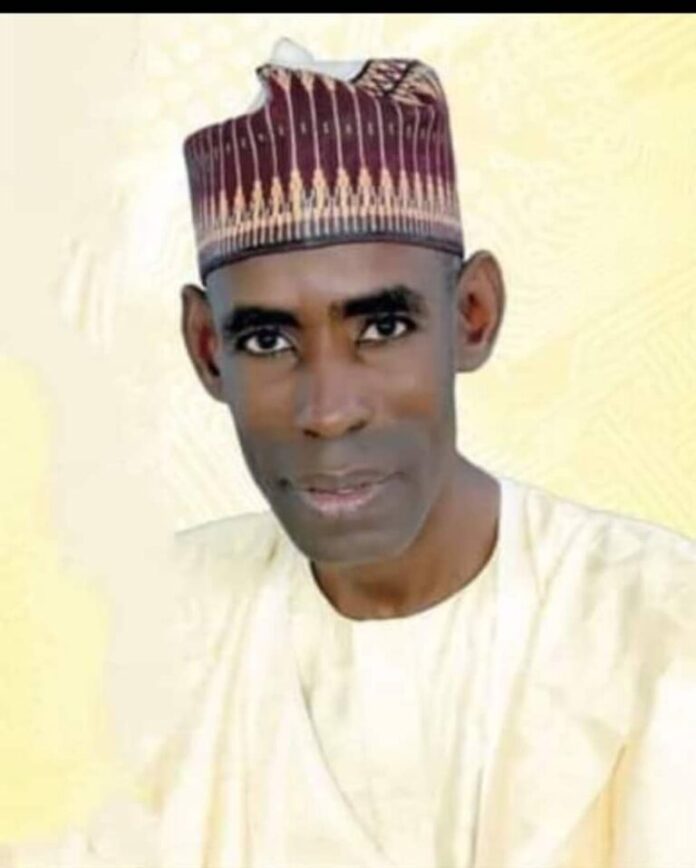PDP, zoning, and the 2027 calculations, by Engr. Bello Gwarzo Abdullahi, FNSE
Surprised? Not in the least.
The final funeral dirge of the People’s Democratic Party (PDP) may well have been sounded with its recent decision to allocate the 2027 presidential ticket to the South. For astute observers, the writing has long been inscribed on the wall — etched through the relentless scheming and machinations of pivotal political figures within the party. However, this decision embodies more than mere internal miscalculation; it strikes at the very essence of Nigeria’s fragile democratic experiment.
Let us be unequivocal: this is not solely about intra-party politics. It encompasses the broader implications for opposition, governance, and the integrity of our democratic institutions. If we are genuinely committed to democratic ideals, then this zoning decision — along with the self-serving motivations underpinning it — must be confronted resolutely.
Democracy flourishes on a robust and functional opposition. Yet what we are witnessing is a calculated erosion of this vital pillar. The ruling party — emboldened by incumbency and buoyed by a feeble opposition — appears less preoccupied with governance and more obsessed with consolidating its grip on power in anticipation of 2027. With each strategic maneuver aimed at silencing, sidelining, or fracturing the opposition, Nigeria inches closer to the precipice of a de facto one-party state.
READ ALSO: Arewa: From voting power to development power! – A rejoinder, by Engr. Bello Gwarzo Abdullahi, FNSE
If we permit this trajectory to persist unchecked, the repercussions will be extensive and catastrophic. A democracy devoid of a credible opposition is no democracy at all — it devolves into an illusion, a dictatorship masquerading in the guise of periodic elections.
The Dangers of Political Capitulation
Efforts to muzzle, intimidate, or coerce the opposition are not novel. Nigeria’s political history is replete with such tactics. What distinguishes today’s climate is the apparent complacency — or, worse, complicity — of certain factions within the opposition who now seem resigned to obsolescence.
The Nigerian populace, civil society, and political stakeholders must respond with unity, resolve, and a renewed dedication to democratic principles. The right to vote, to choose freely, and to have that choice honored is non-negotiable. It must not be bartered for ephemeral political favors or elite convenience.
The PDP’s zoning decision has understandably stirred a hornet’s nest. It raises critical inquiries regarding internal party democracy, regional equity, and whether zoning — once conceived as a mechanism for inclusivity — now serves primarily to entrench elite dominance rather than foster national cohesion.
Zoning, Equity, and the Elusive Ideal
At its core, zoning was designed to promote inclusivity and navigate Nigeria’s intricate ethno-regional balance. However, when it morphs into a stratagem to marginalize competent individuals or shield vested interests, its legitimacy wanes. At what juncture does the pursuit of “regional balance” transform into a façade for elite preservation?
We must re-examine the principles of justice and fair play within the context of zoning. While some contend that zoning reflects the normative — what ought to be — others denounce it as an elite contrivance to seize power through subterfuge — the stark reality of what is.
In a genuinely democratic system, merit, competence, character, and public trust must eclipse rigid, rotational prescriptions. Otherwise, zoning will persist as a veil for mediocrity and manipulation, rather than a conduit to equity.
Towards a One-Party State?
The notion of a one-party state is no longer a distant specter — it is a creeping reality. The signs are unmistakable. A dominant ruling party, unshackled by a credible and united opposition, can swiftly dismantle the very institutions established to safeguard democratic order.
A robust, competitive multi-party system is not a luxury; it is imperative. It ensures accountability, encourages diverse voices, and affords citizens meaningful choices. Undermining this system — whether through flawed zoning practices, internal sabotage, or elite manipulation — jeopardizes the democratic foundation of the nation.
This is why, now more than ever, political coalitions, civil society actors, and the Nigerian electorate must coalesce to defend our democracy. Silence or indifference will only serve to embolden those who seek to monopolize power.
The 2027 Calculations: A Crucial Turning Point
The path to 2027 is already being sculpted — not with audacious visions or competent leadership, but with fear-driven maneuvers, exclusionary tactics, and strategies for power preservation. Yet, the outcome is not preordained. There remains an opportunity to redirect the trajectory.
To reclaim the democratic space, political stakeholders must:
1.Prioritize internal democracy over imposed arrangements and tokenism.
2. Forge credible alliances that transcend ethnicity, region, or religion.
3. Focus on substantive issues — governance, performance, and the welfare of the Nigerian populace.
4. Resist all efforts to fracture or co-opt the opposition through intimidation or enticement.
Only through collective will and strategic cooperation can Nigeria avert the perils of democratic regression and reaffirm its commitment to a system that serves all.
Conclusion: A Call to Action
These are no ordinary times. The PDP’s zoning decision may appear to be an internal affair, yet it is symptomatic of a deeper malaise — the persistent decay of democratic accountability. Nigeria cannot afford the complacency of political indifference. The cost of silence is simply too great.
This is not about North versus South. It is not about PDP versus APC. It is about the future of Nigeria — a future that must be constructed on fairness, inclusivity, and genuine democracy.
All democratic forces — political parties, civil society, the media, and citizens — must rally to defend what remains of our political space. The battle for democracy is not fought solely at the polls; it is waged daily in the choices we make, the silence we refuse to accept, and the systems we insist on protecting.
Let us not betray the future. Let us act — now.
bgabdullahi@gmail.com
Follow the Neptune Prime channel on WhatsApp:
Do you have breaking news, interview request, opinion, suggestion, or want your event covered? Email us at neptuneprime2233@gmail.com





